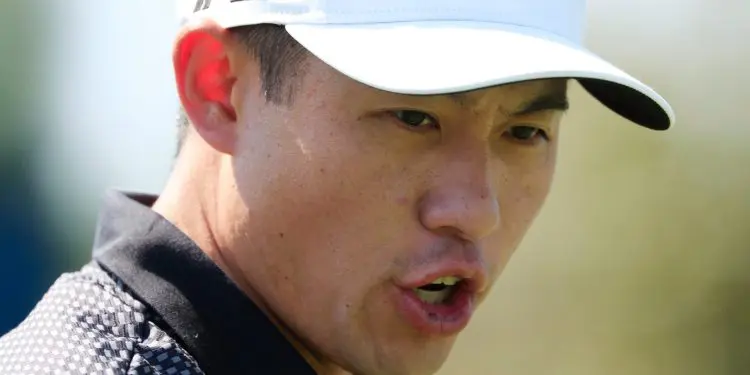Collin Morikawa has defiantly stood his ground against criticism from golf commentators Brandel Chamblee and Paul McGinley in the wake of his decision to avoid media interaction following his near-win at the Arnold Palmer Invitational. Despite the critique, Morikawa maintained he did not regret his actions or comments, arguing that he was too upset about his near-miss to engage with the media.
This incident has reignited discussions about the obligations professional golfers have towards the media and their fanbase. Morikawa’s insistence that he values and respects his fans was highlighted by his commitment to signing autographs post-match at Bay Hill. However, his avoidance of the media spotlight has sparked debate about the expectations placed on golfers to dissect their performances publicly.
Golf analyst Charlie Hulme has waded into the conversation, voicing concern about what he perceives as an inflated sense of entitlement from the media. Hulme argued that players should not be obliged to dedicate a portion of their time to media interactions. He suggested that such expectations could detract from the game itself and do little to enhance audience understanding or appreciation of golf.
Hulme suggested instead that allowing fans a glimpse into the behind-the-scenes world of professional golfers, such as their practice routines, could provide more meaningful insight. He believes that such content would be a more effective use of golfers’ time and would offer more value to fans.
This concept of providing a more intimate look into the lives of pro golfers is gaining traction, as evidenced by the success of Netflix’s ‘Full Swing’ Docuseries. The series, which offers a behind-the-scenes look at professional golfers’ lives, has drawn in both long-time fans and newcomers. In fact, the release of the series saw an 11% increase in lapsed viewers returning to PGA Tour events, and a 42% increase in overall viewership.
However, not everyone agrees with Hulme’s viewpoint. PGA Tour veteran Rocco Mediate has lambasted Morikawa for his decision to avoid media interaction, branding his actions as “dumb” and “selfish”. He argued that part of a golfer’s role is to relay their performance to the public, irrespective of the outcome of the game.
Mediate’s harsh criticism underscores the tension between golfers’ personal feelings and their perceived professional obligations. It raises the question of whether it’s just as important for a golfer to face the media after a loss as it is after a win. As the debate continues, the spotlight remains firmly on the PGA Tour and its expectations of its players. How do you feel about this? Do you agree with Mediate’s stance? Share your thoughts!







